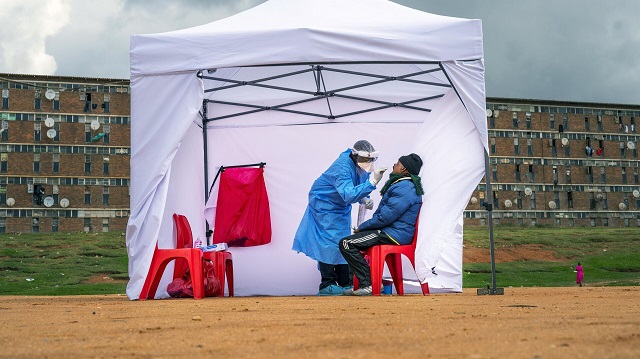
Move underway to expand the initiative
Kampala, Uganda | THE INDEPENDENT | Phase Two of the Africa Women Health Champions (AWHC) initiative is underway and it will be bigger with an expanded reach.
The World Health Organisation Regional Office for Africa (WHO-AFRO) and United Nations Volunteers (UNV) programme partnered on Africa Women Health Champions (AWHC) initiative in March 2020 with 120 women health professionals in 38 countries across the African continent. Two years on, the AWHC initiative launched its second phase, this time with an even more expanded reach.
Launched on International Women’s Day 2023, AWHC phase two will span over the course of two years and recruit young women professionals between 22 and 35 years as UN Volunteer health champions across WHO Country Offices in Africa.
This solidifies WHO and UNV partnership further to improve health for people on the continent and expand opportunities for African health professionals. It’s also an example of women’s leadership in the health sector in Africa while promoting gender parity in the WHO workforce.
“WHO in the African region has faced significant challenges in external communication due to insufficient personnel in country offices responsible for this task. This has been a critical gap for decades but UN Volunteers serving as African Women Health Champions are helping to address this issue,” says Sakuya OKA, Communications Manager, WHO Regional Office for Africa.
Phase two aims to include both national and international volunteers. There is plan for a rotational system to give national volunteers opportunities to get international experience during their first year of service in the same field.
There is more focus on health career development opportunities, increasing diversity and engagement of under-represented countries. And for this, WHO and UNV plan to collaborate on a career development programme including career development pages on WHO’s iLearn portal, a peer community network, and a mentorship for health champions, and support for technical training at the regional and country level.
Together, WHO and UNV will develop an annual work plan with co-branded communications, outreach efforts, and the monitoring and evaluation of the AWHC initiative.
“My drive as an African Women Health Champion is to influence and empower individuals, and communities to make healthier choices, through multiple communication channels. Collaborate with all relevant actors, including the health cluster, regional and field offices, other WHO departments, UN agencies, and other partners to identify and create communication opportunities and prepare communication campaigns on specific topics,’’ says Nyandoh Paho Tadfor, Communications Assistant, UCN Cluster at WHO Regional Office for Africa in Brazzaville, the Republic of the Congo.
Phase One of the AWHC initiative was a resounding success where 120 women health professional served in 38 countries across Africa. They came from 36 nationalities and 25 professional areas. Phase Two builds on the progress made from 2020 to date.
 The Independent Uganda: You get the Truth we Pay the Price
The Independent Uganda: You get the Truth we Pay the Price



